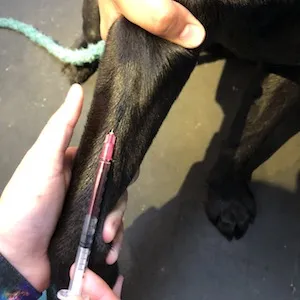Heartworm disease poses a significant threat to our beloved pets, a fact that every responsible owner should be aware of. This serious and potentially fatal illness is caused by parasitic worms that infest the heart, lungs, and associated blood vessels, leading to severe organ damage and, in many cases, death. While dogs are considered the natural host for heartworms, cats and even ferrets can also be affected, though the disease presents differently in each species. Given the prevalence and severity of heartworm disease, understanding heartworm meds and their role in prevention and treatment is paramount.
The Silent Threat: What is Heartworm Disease?
Heartworm disease is a serious and potentially fatal disease in pets in the United States and many other parts of the world. It is caused by foot-long worms (heartworms) that live in the heart, lungs, and associated blood vessels of affected pets, causing severe lung disease, heart failure, and damage to other organs. Heartworms can affect dogs, cats, and ferrets, and occasionally other mammal species. Wild animals like foxes and coyotes often act as carriers, bringing the disease closer to our domestic companions.
 A close-up of heartworms
A close-up of heartworms
Dogs are ideal hosts for heartworms. This means that adult heartworms can mature, reproduce, and produce offspring within a dog. An untreated infection can lead to hundreds of worms, causing lasting damage to the heart, lungs, and arteries. This damage can impact a dog’s quality of life long after the parasites are gone. Consequently, heartworm prevention for dogs is the most effective strategy, with treatment being a necessary intervention when the disease is detected early.
Cats, on the other hand, are atypical hosts. Most heartworms in cats don’t survive to adulthood, and infections often involve only one to three worms, or sometimes none at all. However, even immature worms can cause a dangerous condition known as heartworm-associated respiratory disease (HARD). Crucially, the heartworm meds used for dogs are not safe for cats. Therefore, prevention is the sole method to protect felines.
Ferrets present a unique case, susceptible to infection like dogs but with smaller bodies where even a few worms can cause severe issues, similar to cats. Diagnosis can be challenging, and there is no approved treatment for heartworms in ferrets. Prevention is absolutely critical for their well-being.
How Heartworms Spread: The Mosquito’s Role
The transmission of heartworm disease is intrinsically linked to mosquitoes. When a mosquito bites an infected animal (dog, fox, coyote, or wolf), it ingests microscopic baby worms called microfilaria. Over 10-14 days, these larvae mature into infective-stage larvae within the mosquito. When this infected mosquito then bites another susceptible animal, it deposits these larvae, which enter the new host through the bite wound. It takes about six months for these larvae to mature into adult heartworms capable of reproducing. These adult worms can live for several years, posing a continuous threat.
Recognizing the Signs: Symptoms of Heartworm Disease
The symptoms of heartworm disease can vary significantly depending on the host animal and the stage of infection.
In Dogs:
Early stages of heartworm disease in dogs are often asymptomatic. As the infection progresses, owners may notice:
- A mild, persistent cough
- Reluctance to exercise or fatigue after moderate activity
- Decreased appetite and weight loss
- In advanced cases, heart failure leading to fluid accumulation in the abdomen.
A critical, life-threatening condition known as caval syndrome can occur with a sudden blockage of blood flow in the heart, marked by labored breathing, pale gums, and dark urine.
 A dog receiving a blood sample for testing
A dog receiving a blood sample for testing
In Cats:
Heartworm symptoms in cats can be subtle or dramatic, including:
- Coughing, wheezing, or asthma-like attacks
- Periodic vomiting
- Lack of appetite or weight loss
- Difficulty walking, fainting, or seizures
- Fluid accumulation in the abdomen.
Sudden collapse or death can unfortunately be the first sign in some cats.
In Ferrets:
Ferrets exhibit symptoms similar to dogs but develop them more rapidly due to their small heart size. Even a single worm can cause severe respiratory distress, characterized by:
- Lethargy
- Open-mouth breathing or rapid breathing
- Pale blue or muddy gum color
- Coughing
Assessing Your Pet’s Risk: Where Does Heartworm Disease Occur?
Heartworm disease has been diagnosed in all 50 states in the U.S. Factors such as climate (temperature, humidity), the presence of various mosquito species, breeding grounds, and animal reservoirs like infected wildlife contribute to the risk. Even in areas with perceived low risk, factors like wind carrying infected mosquitoes or the relocation of infected pets can introduce and spread the disease. For these reasons, the American Heartworm Society recommends a “think 12” approach: test your pet every 12 months and administer heartworm meds year-round.
The Importance of Heartworm Testing
Early detection of heartworm disease is crucial for successful treatment and recovery. Since early symptoms are often absent, veterinary-administered heartworm tests are essential. These tests, performed on a small blood sample, detect the presence of heartworm proteins.
Testing Protocols:
- Dogs: Annual testing is recommended, even for dogs on year-round prevention, to ensure the medication is effective. Puppies under seven months can start prevention without a test but require testing six months later, then again six months after that, and annually thereafter. Adult dogs not previously on prevention need a test before starting.
- Cats: Testing is more complex due to the atypical nature of infection. A combination of antigen and antibody tests, along with X-rays or ultrasounds, may be used. Cats should be tested before starting prevention.
- Ferrets: Diagnosis can be challenging, often involving antigen testing and imaging like echocardiography.
What Happens If Your Pet Tests Positive for Heartworms?
A positive heartworm test requires prompt and careful management.
For Dogs:
- Confirm Diagnosis: The initial positive result is confirmed with a different test.
- Restrict Exercise: Activity must be significantly limited to minimize damage to the heart and lungs.
- Stabilize Disease: If the dog is severely ill, therapy may be needed to stabilize their condition before formal treatment.
- Administer Treatment: The American Heartworm Society outlines specific treatment protocols involving medications, often administered by injection. Success rates are high for dogs with mild symptoms, though more severe cases carry greater risks.
- Test and Prevent: Approximately nine months post-treatment, a follow-up test is performed. Continuous year-round heartworm prevention is vital to prevent reinfection.
 A dog resting in a kennel
A dog resting in a kennel
For Cats:
- Diagnosis: May involve physical exams, X-rays, blood tests, and ultrasounds.
- Treatment: There is no approved drug therapy for heartworm infection in cats, and dog medications are unsafe. Care focuses on stabilizing the cat and managing symptoms.
- Monitoring: Regular check-ups and potential X-rays are used to monitor the cat’s condition.
- Veterinary Care: Severe cases may require hospitalization with supportive therapies. Surgical removal of worms is sometimes possible.
- Prevention: Monthly heartworm meds are crucial for preventing new infections.
For Ferrets:
- Diagnosis: Similar to dogs and cats, involving physical exams, imaging, and blood tests.
- Treatment: No approved treatment exists for ferrets. Veterinary care focuses on stabilization and long-term management.
- Monitoring: Regular monitoring with X-rays may be recommended.
- Veterinary Care: Hospitalization and supportive treatments might be necessary for severe cases.
- Prevention: Year-round prevention is essential due to their high susceptibility.
Understanding Heartworm Medication and Prevention
Prescription Requirements:
Yes, heartworm preventives typically require a prescription from a licensed veterinarian. This is because a veterinarian needs to confirm your pet is heartworm-free before prescribing medication, as administering preventives to an infected pet can cause severe reactions.
How Preventives Work:
Most monthly heartworm meds work by eliminating the immature larval stages of the heartworm parasite. It’s critical to administer them on schedule, as larvae can mature into a stage not effectively treated by preventives within a short period.
Broad-Spectrum Protection:
Some heartworm preventives also offer protection against intestinal parasites like hookworms and roundworms, and external parasites like fleas and ticks. However, no single product covers all parasites, so consulting your veterinarian is key to choosing the best option.
Starting Prevention in Young Animals:
Puppies, kittens, and ferrets (once they reach a certain weight) should start on heartworm prevention as early as recommended by product labels, typically around 8 weeks of age. Dosages are weight-based, so regular weigh-ins are important.
Year-Round Prevention:
Even in areas with cold winters or dry deserts, year-round prevention is strongly recommended due to changing climates, mosquito adaptation, and the potential for infected wildlife.
The Dangers of Untreated Heartworm Disease
Untreated heartworm disease can lead to fatal complications. In dogs, adult worms cause inflammation and blockages in blood vessels, leading to pulmonary thrombosis, heart failure, and potential liver or kidney failure. Sudden death can occur, especially in cases of massive larval infection or caval syndrome. The age of a dog can influence treatment success, with older dogs potentially having pre-existing organ damage.
For all pet owners, understanding the risks and the importance of heartworm meds is vital. Consistent testing and prevention, guided by your veterinarian, are the most effective ways to protect your furry companions from this devastating disease.
References:
